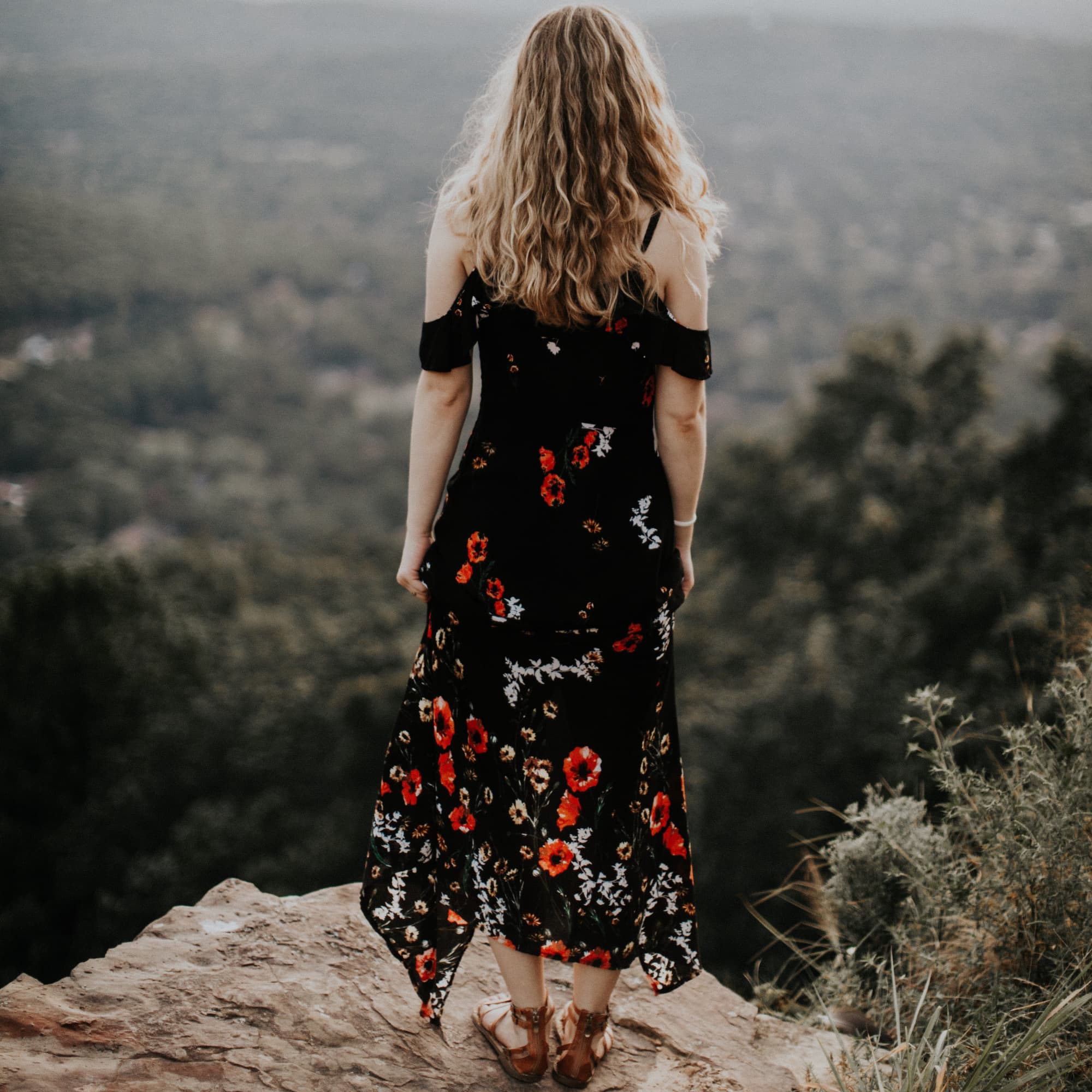
- POPSUGAR Australia
- Fashion
- I Started Dressing Feminine Because of My Disability, and, TBH, I’m Over It
I Started Dressing Feminine Because of My Disability, and, TBH, I’m Over It

Ever since I was a preteen, I’ve cared deeply about my personal style. Chalk it up to living in a small beach town, but clothing has always been my platform for self-expression and individuality, like it is for so many others. During my confusing and uncertain adolescent years, I naturally gravitated toward pieces I saw in magazines: lacy tank tops, fun headbands, and heels that made me feel decidedly grown-up. But it wasn’t until a few years later that my feminine fashion choices would become a mask for the aspect of my life I so desperately wanted to hide: my physical disability.
As a timid young girl growing up with cerebral palsy, I subconsciously internalised which of my peers were “fashionable” from a very early age – and none of them seemed to have anything in common with me. Sure, we all shopped in the girls’ department, but all of them were able-bodied, and I wasn’t. It didn’t help that I couldn’t wear many of the early 2000s trends either – skinny jeans didn’t fit because of my leg brace, and neither did UGG boots or ballet flats. I loved fashion, but much of it wasn’t accessible to me.
Disabled women can be feminine, stylish, and sexy, no matter what they wear.
Then, when I turned 12, I was cleared by my doctor to stop wearing my brace, and the fashion world became my oyster. I persuaded my mom to buy me flip-flops with floral accents, mini skirts to show off my brace-flee legs, and yes, eventually my very first pair of skinny jeans. Yet even with this newfound sartorial freedom, I still struggled with body image issues due to my disability. I seldom saw people who looked like me on the runway at Fashion Week or featured in ad campaigns, so naturally, I assumed that my disability somehow rendered me unfashionable. When it came to style, I felt like I was behind the curve, as if I’d magically become the best-dressed teen girl alive if I only were able-bodied. Of course, that wasn’t the case, but I thought my cerebral palsy tainted my femininity so much that I had to overcompensate for what society taught me to believe I was lacking.
By the time I went off to college, my style was undeniably and unapologetically feminine. I arrived on campus with a veritable bouquet of floral dresses, skirts in a rainbow of colors and patterns, and embellished going-out tops. Back then, I figured that I had purchased these items because I genuinely liked them, but as the years wore on, I realized that wasn’t the case at all. I truly believed that baring my legs and arms would draw less attention to my hemiplegia than wearing a pair of shorts because, in my experience, most people don’t expect women with disabilities to dress feminine. While it pains me to say it now, I constantly felt like less of a woman than the able-bodied women who surrounded me. I remember thinking that if I made traditionally feminine style choices, then no one would assume I was different, and I would successfully avoid the shame I felt about my disability.
And then something happened. I decided to finally open up about my cerebral palsy, and, consciously or unconsciously, I no longer felt the need to present myself as overtly feminine. I started going to work makeup-free in jeans and sneakers, and I loved it. Gone were the days of scouring my closet for the girliest outfit I could find – I dressed solely for myself. Upon reflection, my perceived lack of womanhood was deeply rooted in ableist beauty standards. The fact is that disabled women can be feminine, stylish, and sexy, no matter what they wear.
Now, nearly three decades later, I finally feel comfortable enough in my own skin to wear whatever I want. I no longer feel compelled to dress feminine in order to navigate the world, or the fitting room. I’ll admit that I still have a soft spot for girly looks, but not as much as I relish dressing down in leggings. Regardless, I’ll always be woman enough, and I don’t need a floral dress to prove it.


